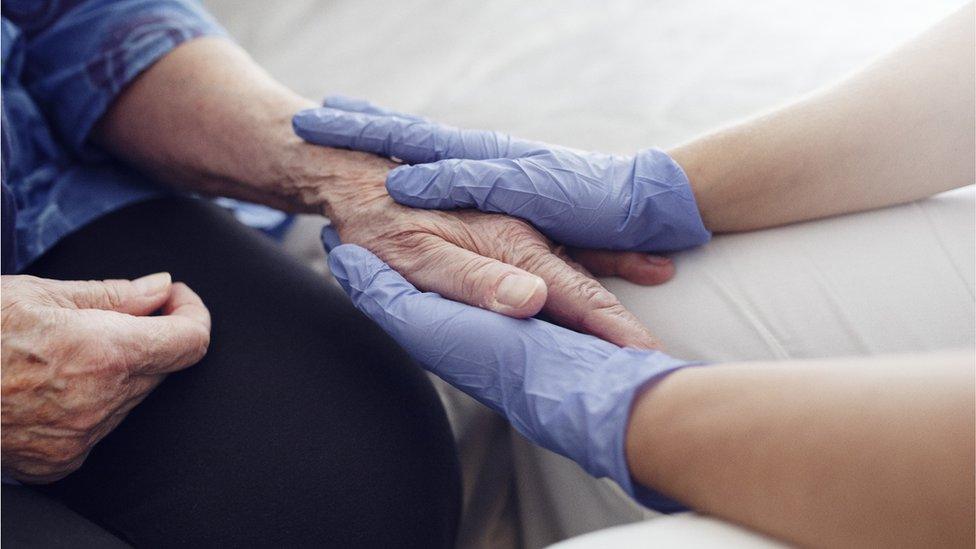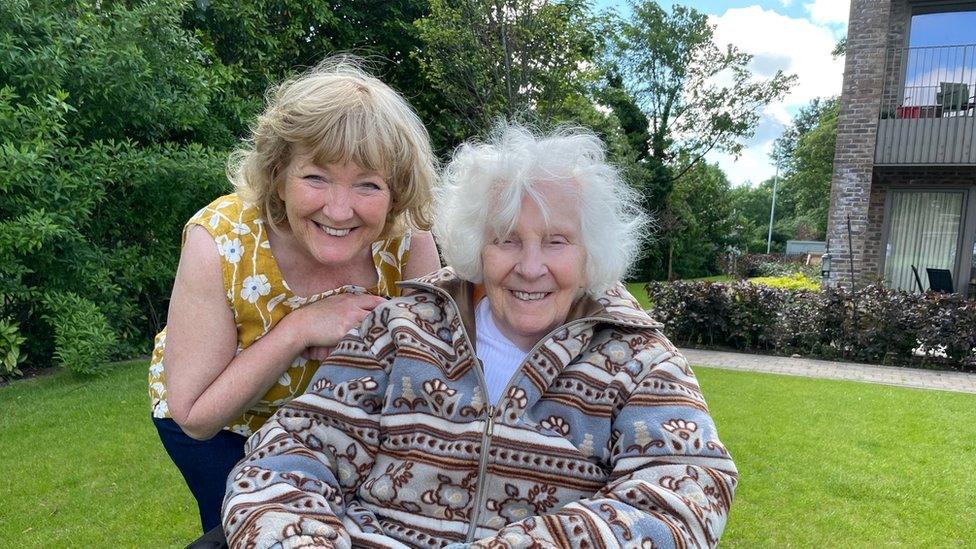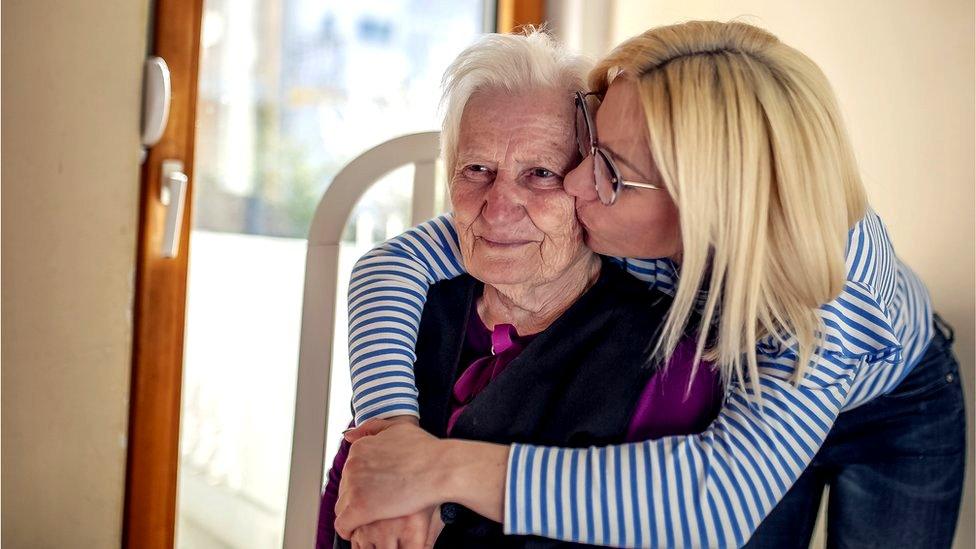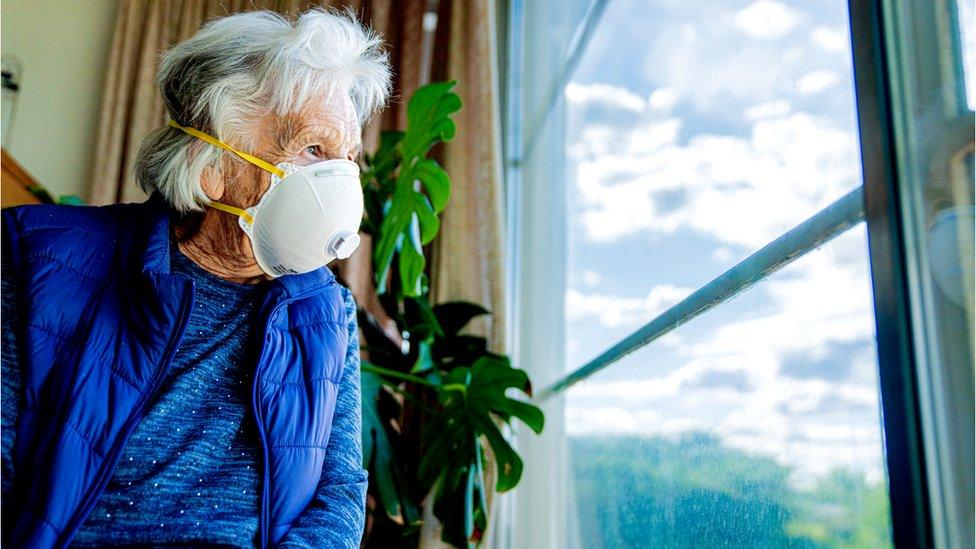Call for Scottish care home residents to avoid Covid isolation
- Published

Elderly care home residents should not have to isolate in their rooms if they test negative after coming into contact with Covid, campaigners have said.
Care Home Relatives Scotland (CHRS) has called for the last "unnecessary" restriction to be dropped.
The campaign group said elderly people were "upset and alone" during repeated outbreaks, but the measures were not stopping the spread of the virus.
The Scottish government said remaining restrictions were being reviewed.
Residents of care homes last week secured the right to have visits from a loved one even during a Covid outbreak, external.
Some families were still not able to have regular contact with their relatives in care homes more than two years after the start of the pandemic.
The Scottish government put the proposed Anne's law, external into national standards, meaning the law is put into effect while the legislation is being prepared.
Anne's law is named after Anne Duke whose family campaigned for better visiting rights during the pandemic. She died in November 2021, aged 63, after being cut off from her family for months at a time while battling early-onset dementia.
Residents are now allowed one named visitor even when restrictions are in place and can have a visitor in their own room if they are isolating during a Covid outbreak in the care home.

Cathie Russell with her mother, who died four weeks after this picture was taken
Cathie Russell from CHRS said her group was "chipping away" at "unnecessary" restrictions on elderly care home residents.
She said members of her campaign group felt isolating residents when they were considered to be a Covid contact "doesn't serve any practical purpose other than to make people feel upset and alone".
"It isn't stopping Covid spreading in the homes because they can't stop people with dementia wandering about and the staff are still coming in and out," Ms Russell said.
Of about 25,000 deaths in care homes in Scotland in the past two years, more than 4,000 were related to Covid-19.
Elderly residents can be repeatedly stuck in very small rooms, unable to use care home facilities, for up to 14 days at a time - every time there is an outbreak of at least two cases in the home.
In some circumstances, the local health protection team "may consider it necessary to pause visiting, external".
'Cooped up week after week'
Ms Russell, who was her mother's carer for five years until she had to go into a care home, helped set up the group to campaign for residents' rights to see their family.
She had a total of 30 minutes with her mother, who died in July 2021, in the first year of the pandemic.
She said: "This is the last thing we would like changed - the need to isolate when you don't have Covid and you're not testing positive for it.
"We can't discern any advantage for the person who is isolated in a care home setting because there are people who do wander about and it doesn't stop [Covid] spreading.
"But it is doing a lot of harm to them because they are being cooped up week after week."
She added: "I have people in the group who've been married for 50 years and they're still facing quite severe restrictions in seeing their own partners."
'Balancing risk with harms'
Kevin Stewart, the Scottish government's social care minister, said their revised guidance for care homes recognised the "positive impact of vaccination and the additional treatments" while keeping people safe.
"We are working with Public Health Scotland to review the remaining recommendations in place for adult care homes, balancing risk with harms, so that care homes can return to normality, as soon as is possible," he said.
"Last week we announced changes to the Health and Social Care Standards which means that people living in adult care homes now have the right to see someone who is dear to them, even during an outbreak.
"People living in adult care homes can also nominate someone to take part in meeting their care needs."
Related topics
- Published31 March 2022

- Published10 February 2021

- Published28 July 2020
